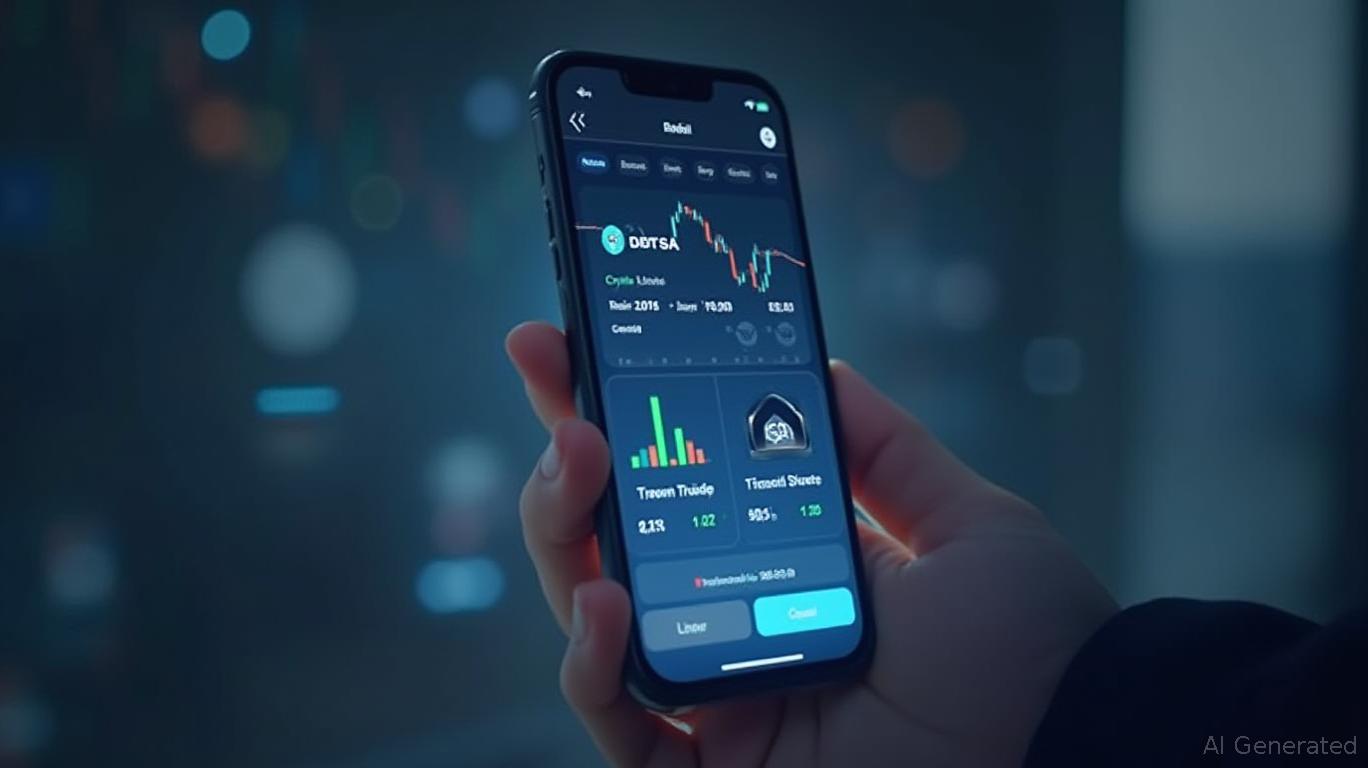Can Crypto Propel SoFi Stock to New Heights in Fintech Innovation?

SoFi Technologies Reenters Crypto Market: A Strategic Move for Financial Growth
SoFi’s Bold Crypto Comeback
SoFi Technologies (NASDAQ: SOFI) is making a significant return to the cryptocurrency sector, a decision that could unlock its potential as a major player in the financial industry. After stepping back from crypto in late 2023 due to regulatory challenges, the company is set to relaunch crypto trading and venture into blockchain-based remittances by 2025. This strategic shift positions SoFi to take advantage of the rapidly expanding global blockchain fintech market, which is expected to reach $49 billion by 2030.
- SoFi’s Bold Crypto Comeback
- Reviving Crypto Trading: Targeting a Younger Audience
- User Growth Potential: Attracting Younger Investors
- blockchain Remittances: Disrupting Traditional Banking
- Enhancing Customer Experience: Cost-Effective Solutions
- Navigating Regulatory Changes: A Favorable Environment
- Expanding Infrastructure: Monetizing Technology
- A Comprehensive Financial Ecosystem: Beyond Banking
- Financial Performance: A Strong Foundation
- Assessing Risks: Navigating a Volatile Landscape
- Investment Outlook: A Stock with Growth Potential
- Conclusion: A Strategic Move for Future Growth
Reviving Crypto Trading: Targeting a Younger Audience
The reintroduction of spot trading for Bitcoin (BTC) and Ethereum (ETH) by the end of 2025 is not merely a nostalgic return; it’s a strategic initiative aimed at attracting a younger, tech-savvy clientele. SoFi plans to expand its offerings to include stablecoins, staking, and crypto-collateralized lending within the next two years. These enhancements cater to the increasing demand for integrating cryptocurrency into everyday financial services.
User Growth Potential: Attracting Younger Investors
Following the announcement of its crypto plans, SoFi’s stock experienced a notable increase of over 2% on June 25, 2025, reflecting investor enthusiasm. The real opportunity lies in attracting younger investors who favor user-friendly apps and seek exposure to digital assets. This demographic is also inclined to utilize a range of financial services, such as lending and insurance, which could enhance cross-selling opportunities for SoFi.
blockchain Remittances: Disrupting Traditional Banking
SoFi’s blockchain-based remittance service is more than just an additional feature; it aims to challenge the inefficiencies of traditional banking. By utilizing blockchain technology for rapid transfers with clear fees, SoFi seeks to compete with established players like Western Union and MoneyGram. The U.S. market alone sees $93 billion in annual remittances, primarily directed towards Latin America and Asia, with global remittances surpassing $800 billion according to 2023 World Bank data.
Enhancing Customer Experience: Cost-Effective Solutions
The service offers 24/7 access and supports stablecoins, which eliminates currency conversion fees. For instance, a Mexican immigrant in California could send either USD or a stablecoin pegged to USD to a family member in Mexico City, ensuring funds arrive in minutes rather than days. This cost-effective solution not only enhances user experience but also fosters deeper customer relationships, as those using SoFi for remittances may also explore its savings accounts, loans, or investment options.
Navigating Regulatory Changes: A Favorable Environment
SoFi’s resurgence is supported by evolving regulatory frameworks. Recent interpretive letters from the OCC in March and May 2025 have clarified that national banks can engage in crypto custody and stablecoin activities, providing SoFi with a regulatory green light. This aligns with a broader trend to encourage innovation in financial services.
Expanding Infrastructure: Monetizing Technology
Additionally, SoFi’s Galileo platform, which offers banking-as-a-service through APIs, is now accessible to third-party developers. This could position SoFi as a key provider of blockchain infrastructure, similar to Twilio’s role in communications APIs. By monetizing its technological capabilities, SoFi can diversify its revenue streams beyond its existing customer base.
A Comprehensive Financial Ecosystem: Beyond Banking
SoFi’s ambitions extend beyond just crypto trading and remittances. CEO Anthony Noto envisions integrating blockchain across all its services, including crypto-collateralized loans and blockchain-based insurance products. This comprehensive approach could transform SoFi into a versatile hub for digital finance, reducing customer turnover and increasing lifetime value.
Financial Performance: A Strong Foundation
In its first-quarter 2025 results, SoFi reported a net income of $71 million and revenue of $772 million, indicating a solid financial foundation. The addition of revenue from crypto and remittance services could further accelerate growth.
Assessing Risks: Navigating a Volatile Landscape
However, entering the crypto space is not without its challenges. Price volatility in Bitcoin and Ethereum could deter more cautious users. While regulatory uncertainties have lessened, they still pose potential risks. Competitors like Block and Coinbase are also vying for dominance in the crypto market. Nevertheless, SoFi’s existing user base of over 2.5 million and its integrated banking model provide a competitive advantage.
Investment Outlook: A Stock with Growth Potential
SoFi’s strategic initiatives address two critical challenges: stagnant user growth and dependence on fee-based banking. The introduction of crypto and remittance services could attract millions of new users and generate billions in revenue. If successful, SoFi’s current valuation multiple of approximately 2.5x revenue could rise to align with fintech leaders like PayPal, which trades at around 5x revenue.
Conclusion: A Strategic Move for Future Growth
SoFi’s pivot towards cryptocurrency is not merely a revival; it represents a strategic blueprint for leadership in the fintech sector. Investors who believe in the future integration of crypto and blockchain into mainstream finance should consider SoFi as a valuable addition to their technology portfolios.







